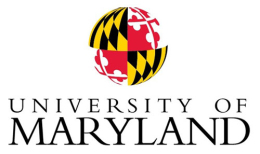
Please note:
The Autonomous Mobile Robotics Laboratory, and associated projects, are no longer in existence. Their webpage was last updated in 2003. The original site remains for archival purposes only.
Autonomous Mobile Robot Lab, University of Maryland
The Autonomous Mobile Robot Laboratory (AMRL) of the University of Maryland is part of the institutions’ research groups that specialize in robots not just for educational and entertainment purposes, but also for goal-based robotics and motion planning.
The AMRL has two major active research areas, the first being in traditional robotics, where intelligent control of goal-based robotics and motion planning are their main interests. In recent times, the AMRL has begun researching new innovative ways of designing and creating constructive robots, and new perception of the roles of robotics in education and the entertainment industry, which is this robotics lab’s second active research area.
AMRL, together with several collaborators including elementary students, artists, computer scientists, teachers, and engineers, has designed and created a robotic storytelling environment nicknamed as PETS, which is short of Personal Electronic Teller of Stories. Here children write stories, create robotic animals, design emotions, and instruct a robot on how to be an actor in their narrative stories.
This lab’s notable projects include the Vacuuming robot, the Scratchy, the homebuilt Smart-V robot, Spiro, and the Frictionless navigation robot called the Airborne Imaging Robotic System, or AIRS, robot.
The Autonomous Mobile Robot Laboratory, through the watchful eyes of the lab’s director Dr. Julio K. Rosenblatt and Mechanical Engineer professor Dr. Gregory Walsh, together with several of the school’s undergraduate students, has also created a small autonomous robot capable of jousting that took the first prize at a Japanese Robotics competition, besting more than 100 competitors. This jousting robot was aptly called the Lancelot robot.
The Autonomous Mobile Robot Laboratory of the University of Maryland is also affiliated with the Parallel Understanding Systems, or PLUS, research group. This group is part of the Department of Computer Science, also of the University of Maryland and specializing in Artificial Intelligence.